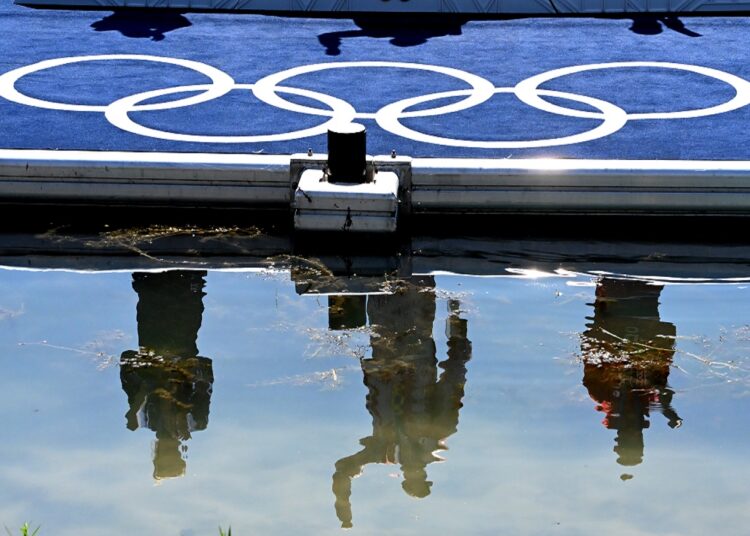When the curtain fell on the Beijing Olympic Games on August 24, 2008, in the Bird’s Nest, alarms went off about the performance of the 149 Cuban athletes who competed in the Chinese capital in pursuit of preserving the status of a world sports power.
Cuba’s record was then 2 golds (years later a third would fall to Yipsi Moreno’s account due to doping by the Belarusian Aksana Miankova), a dozen silvers, and 17 bronzes. The event was marked by the first of the five straight titles that the Giant of Herradura, Mijaín López, would conquer in the super complete division of Greco-Roman wrestling, but also by the fact of finishing in nineteenth position in the general medal table (only 2 of the 20 last disputed were won), below the competitive goal launched then by Ángel Iglesias, vice president of the National Institute of Sports and Physical Education (INDER).
On Sunday, August 11, 2024, at the Champ de Mars Arena in Paris, the wrestler Milaimis de la Caridad Marín (76 kg) authoritatively beat by 6-0 the Kyrgyz and leader of the world ranking in her category, Aiperi Medet Kyzy. Her bronze medal marked the Caribbean epilogue in the City of Light, and in fact, once again laid bare the harsh and critical reality that the Cuban sports movement is going through.
The balance of 2 gold, 1 silver, and 6 bronze medals earned the 61 Cuban athletes 32nd place in the global medal table, the most discreet position after Rome 1960, since Enrique Figuerola’s silver legs placed us in 30th place in Tokyo 1964, despite being the only podium that was climbed then.
Deep cut to performance
In six decades, world sport has become a lucrative mega-industry, which has considerably deviated from its course concerning those principles of the games promulgated by the considered father of modern Olympism, Baron Pierre de Coubertin.
Million-dollar investments put at the service of the development of infrastructure, sports technology and knowledge; the diversification of high-level competition scenarios and Olympic qualification systems; sponsorships and representation agents; added to the growing phenomenon of nationalization of athletes, make muscle activity for any underdeveloped country a kind of chimera.
In one way or another, Cuba had been dealing with all these variables since the dawn of the new millennium and had managed to get around the editions under the five rings with the imprint of what was considered a powerful movement.
Sydney 2000 saw us anchored in the ninth position on the medal table (11-11-7); Athens-2004 placed us in the eleventh position (9-7-11), we had already commented on the nineteenth place in Beijing; London 2012 placed us sixteenth (5-3-7); in Rio de Janeiro 2016 we fell to 18th (5-2-4), and three years ago, in Tokyo, a notable air of efficiency rather than resurrection made us rise to 14th place with 7-3-5 medals.
“Efficiency” is the word that the island’s top sports authorities took care to emphasize on countless occasions before we were all surprised by the opening ceremony in Paris.
It was the concept they needed to hold on to after going through a complex three-year period, in which there was no shortage of signs that the outcome in the French capital could well be different from the premonitions of 5-6 fleeces.
At the Central American and Caribbean Games in San Salvador 2023, for example, the predictions underestimated the growing momentum of Colombia, capable of displacing Cuba to third place overall for the first time since the Kingston 1962 edition; and then at the 2023 Pan American Games in Santiago, Chile, the fall to fifth place was much more resounding.
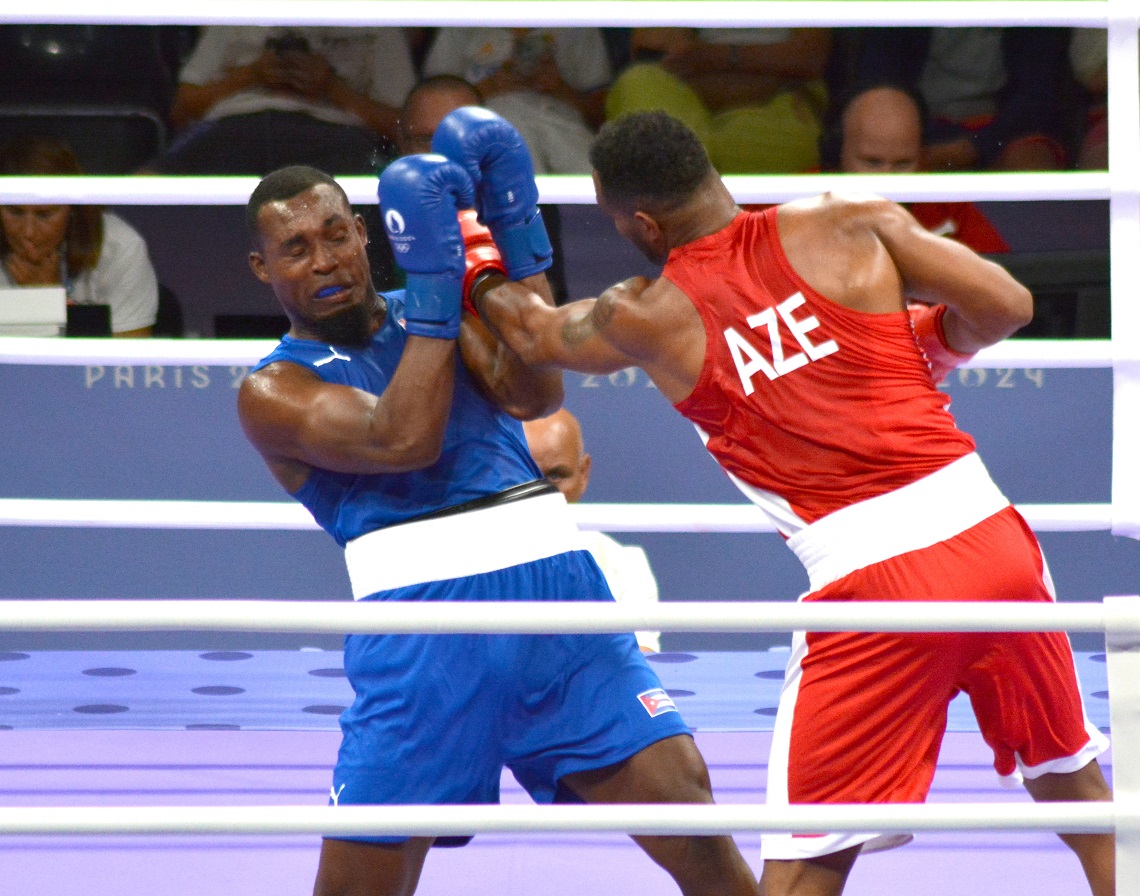
The facts had been showing for some time, specifically since the fourth position in the continental event in Toronto 2015, that Cuba had handed over the baton of America’s second sports power.
Thus, the goal of staying among the top 20 nations on the planet and bringing home 5 or 6 gold medals was like clinging to this as its last hope, one that ultimately ended up being just that: a chain of 11 summer events in a row was broken, ending in the now coveted Top-20.
Several of the directors’ bets, except for triple jumper Leyanis Pérez, were for athletes who either had not had their best cycle in terms of performance or were approaching the end of their careers. Such are the cases of boxers Julio César la Cruz and Arlen López, or judokas Andy Granda and multi-award-winning Idalys Ortiz, just to mention well-known examples handled at the predictions table.
Expanding the x-ray to the disciplines that have historically lifted Cuba under the five rings, in Paris the most pleasant taste was left by the athletes of wrestling, a sport that unquestionably circulates through the Cuban bloodstream.
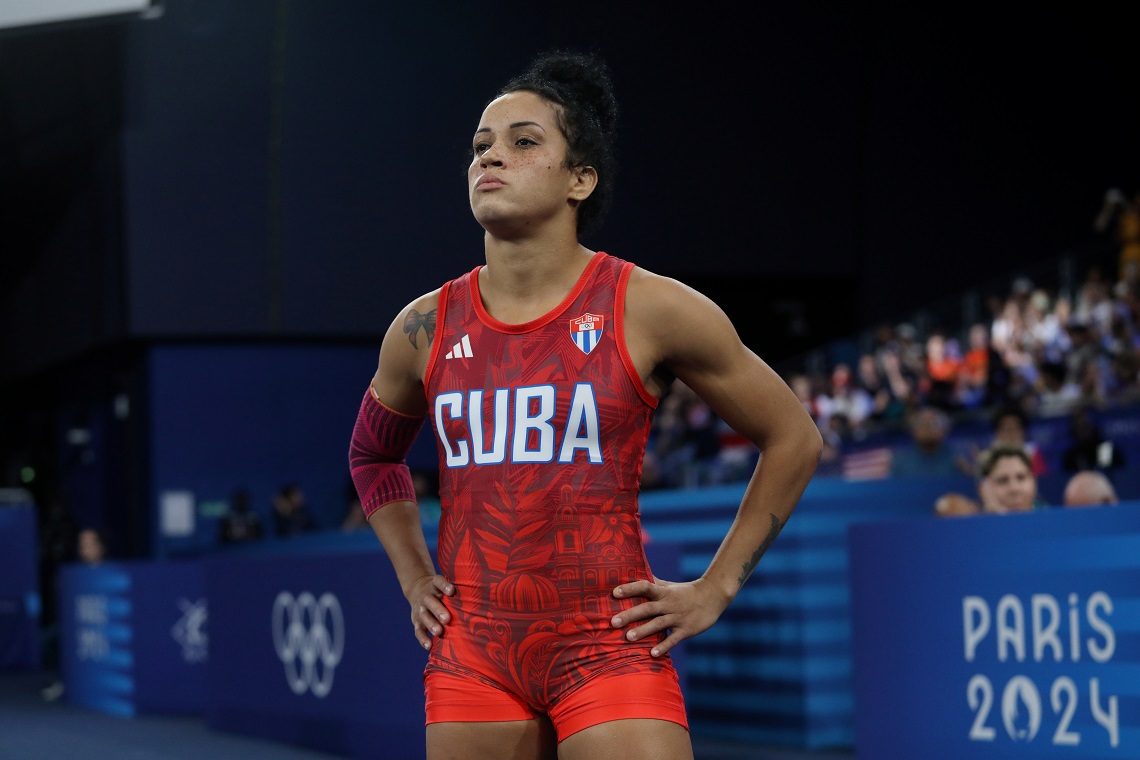
The results on the mats, with the fifth crown in a row of the enormous Mijaín López at the head, accumulated a gold, a silver, and 3 bronzes, which represented more than 50% of the total medals achieved by the delegation, with the addition that the two medals around the neck of Yusneylis Guzmán and Milaymis Marín were the first in female wrestling, a discipline that, as happened with weightlifting, had late incorporation into the official practice for women.
As for the rest, boxing gave way to tackles its status as flagship. Cuba entered five boxers in Paris, a figure that initially set off a red flag of concern. Erislandy Álvarez (63.5 kg), with a haughtiness as superb as it was “shameless,” saved the gold honor in his Olympic debut; and only the double champion of Rio 2016 and Tokyo 2020, Arlen López (80 kg), was able to win the second bronze.
The most discreet performance witnessed by Cuban boxers after Mexico 1968, even taking into account Beijing 2008, where although no gold was achieved, four silvers and as many bronzes were forged in the ring.
Track athletics could not do justice or preserve its strong tradition. Only three finalists made it to the impressive Stade de France, all in the triple jump, a specialty in which three sons of Cuba and its prestigious triple jump academy took the top spot on the awards podium, except that Jordan Díaz, Pedro Pablo Pichardo and Andy Díaz did so wearing spikes for Spain, Portugal and Italy, respectively.
Of the rest, the taekwondo athlete Rafael Alba (+80 kg) stands out, who with his Parisian bronze established himself as the only athlete of that sport capable of repeating the podium under the five rings; and the legacy in canoeing, assumed with poise and power by the phenomenal Yarisleidis Cirilo.
Efficiency, a word that resounds again and again. Here is another brushstroke on the subject. In Paris, as happened in Rio de Janeiro eight years ago, only 4 of the 16 sports in which Cuba entered were able to win a medal; while in Tokyo, competing in the same number of disciplines, seven specialties were awarded with a high degree of effectiveness of 53.8% among those athletes who reached the finals.
The context is changing, but…
We were talking about a sporting scenario that is increasingly demanding of resources and investment. The frenetic fight for the top of the medal table between the United States (40-44-42) and China (40-27-24) confirms this. We are talking about the two main economies of the planet, which were joined in the top 10 by Japan (20-12-13), Australia (18-19-16), France (16-26-22), the Netherlands (15-7-12), Great Britain (14-22-29), South Korea (13-9-19), Italy (12-13-15), and Germany (12-13-8). Something like attending a G-7 summit with Chinese, Australians and South Koreans as special guests.
At this concert, many will claim that Cuba landed on French soil in second place among Latin American nations, only surpassed by Brazil (3-7-10), a South American giant that closed the list of twenty leading nations, a position longed for and unsuccessfully predicted by the INDER.
On this side of the Atlantic, only Americans, Canadians (9-7-11) and Brazilians could look down on the Cubans.
Although this criterion may serve as consolation, other variables influence the depressed panorama of Cuban sport today and are reflected in the low results of the cycle in the Central American and Caribbean, Pan-American and Olympic contexts.
Cuba en París 2024: nueve medallas y lugar 32, el peor en 60 años
The first and most determining factor is human capital. We are far from living the years of prosperity that in the 1980s made Cuban sport take off, driven by the exchange on all fronts with the extinct Soviet Union and the countries of the then Eastern European bloc, or members of the Council for Mutual Economic Assistance (CMEA).
In today’s Cuba, sport has ceased to be a practice extended throughout the national territory to become in many cases a core activity, and within the reach of those parents who can afford, due to pocket and agenda, to enroll their children in some discipline.
This means the sample of athletes available to aspire to reach and succeed in high performance is much smaller than in previous decades. It should be added that, with this starting point of failed recruitment and sample, not always the most talented will prevail or continue their path to the national teams.
Closely linked to this are other phenomena that gravitate around the countless shortages that mark daily life. The precarious infrastructure is combined with a weak competitive calendar at all levels, which, with exceptions, does not guarantee the volumes of confrontation that an athlete needs to meet a certain evolution projection.
I open a parenthesis for the state of both the sports facilities and the necessary inputs to promote sports growth, which are far from the standards that govern this sphere today.
Therefore, in an era in which digitalization dictates the guidelines, it is logical, at the very least, that athletes question what percentage of success their careers will have if they continue to develop in Cuba.
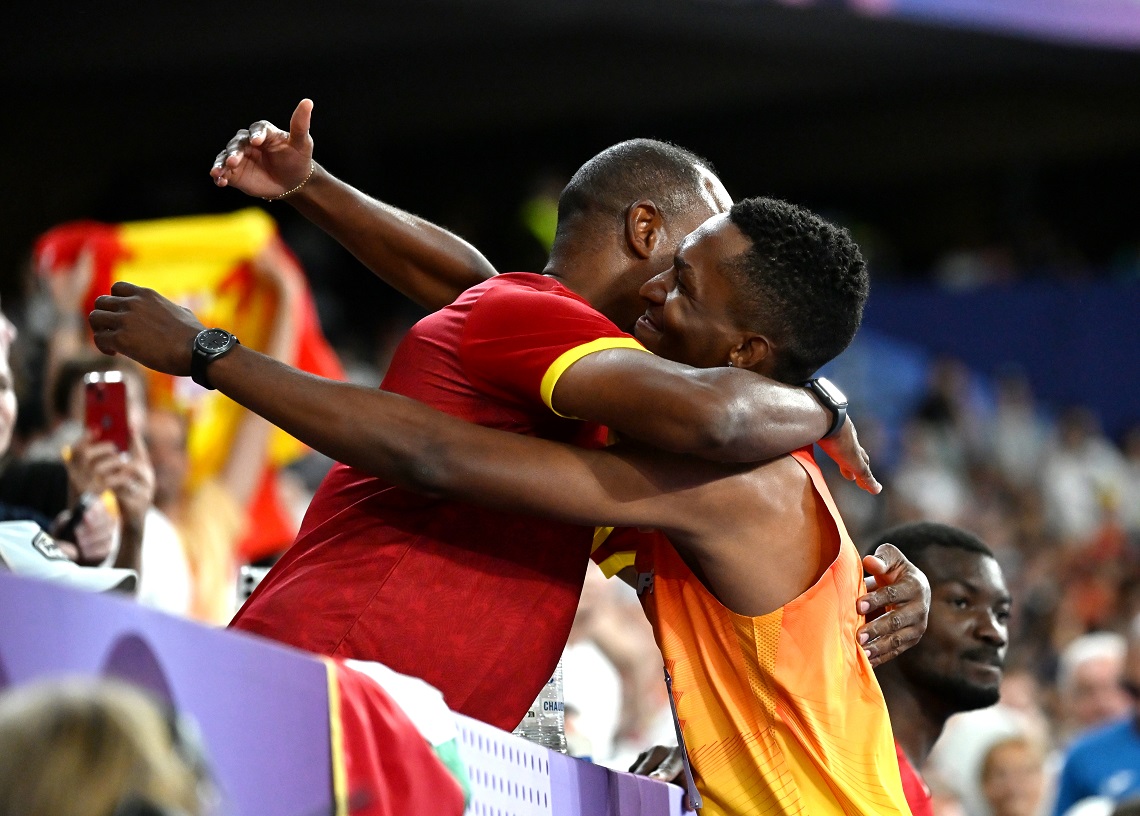
The Pandora’s Box of migratory flow has been opened. According to First Colonel Mario Méndez Mayedo, head of the Identification, Immigration, and Aliens Department of the Ministry of the Interior, some 3 million Cubans born on the island and their descendants live abroad. The figure could vary, but it surely includes hundreds of athletes, many of whom are labeled stars or of a superior level in their respective disciplines.
In Paris 2024, 21 athletes born and trained within the Cuban sports system defended other countries. To the historic and unprecedented podium in the triple jump, we must add the decent performances of volleyball player Wilfedo León (silver-Poland), boxers Loren Berto Alfonso (silver-Azerbaijan), Enmanuel Reyes and Javier Ibáñez, bronze representing Spain and Bulgaria, respectively, and volleyball player Melissa Vargas, fourth with the Ottoman team, despite an individual performance of another dimension.
They were joined by almost fifty coaches who contributed their wisdom from the corner to athletes from thirty countries. The Cuban success in Paris was spread across different latitudes, and that is precisely another of the failures of our current sports system: the inability ― and ineffectiveness in some cases ― to retain the available talent or, failing that, to manage it, in addition to the fact that it does not reside on the island and has decided to settle elsewhere.
Pursuing the good and the morals
In Paris, there were moments, flashes of glory that made me vibrate as if it were the epic of other times. Cuba went to the City of Light with 61 athletes, the lowest number since Tokyo 1964. It could not be expected that with them competing in 53 of the 329 events called, it would be possible to emulate praiseworthy performances like the most recent one in Tokyo (7-3-5) in memory. In fact, obtaining only 9 medals, in addition to highlighting the crisis that both sport and many other spheres are going through, constituted the poorest harvest since the 1972 Munich version.
I would place on the line of alarming the fact that very few disciplines, not even those with the greatest historical tradition, have a solid generational replacement or transition, and that, on many occasions, when this is glimpsed, it fades away, whether due to migratory causes, inadequate management or other demons.
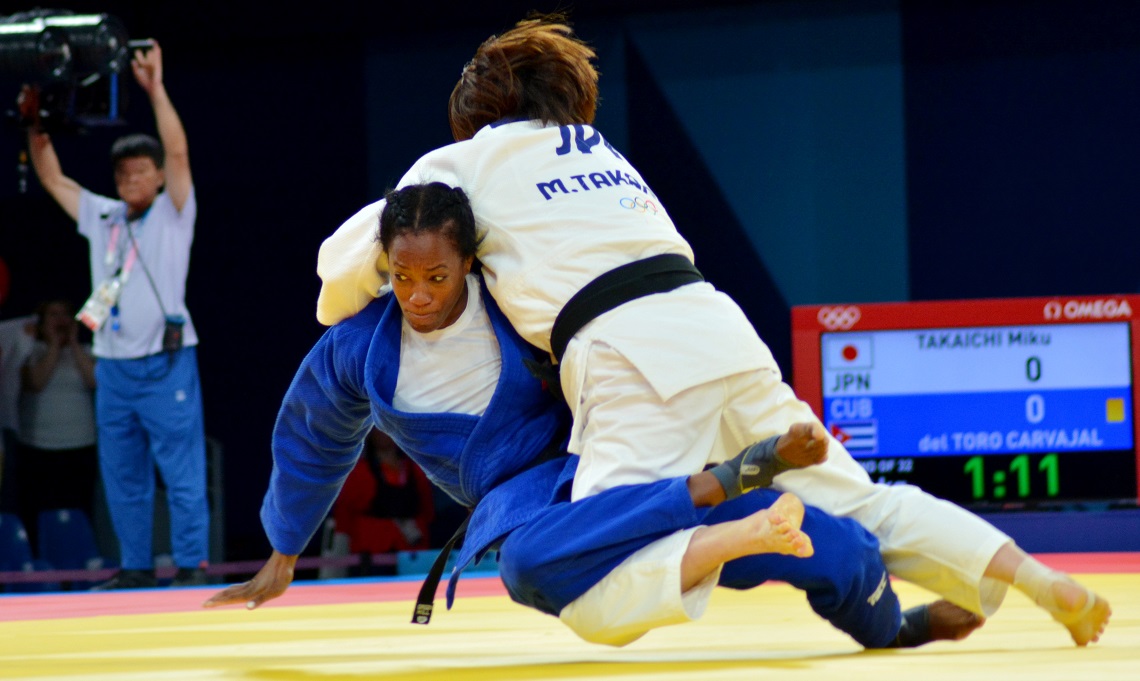
The Paris Olympic Games will remain engraved in my mind as those of extreme competitiveness, supreme quality and redemption in many cases. Personally, I am left with the glorious shoes of Mijaín López, an illustrious guest of Olympus for eternity; the irreverence of Erislandy Álvarez’s fists; the redemption of Simone Biles; the dreamy strokes of Leon Marchand and Katie Ledecky; Armand Duplantis, Sydney McLaughlin, Femke Bol and Sifan Hassan; the projection power of the legendary Teddy Rinner, and the in extremis triumphs of the devilish basketball teams of the United States.
I am left with many more things, in addition to those expressed in these lines from pain and despair. Like me, I hope that the sports authorities, for the good of Cuban sport and for a future that allows us to stop walking on the edge of the precipice, stick with the ones that correspond, above conformism, triumphalist analyses and undone predictions.
Follow OnCuba’s coverage of Paris 2024 here.

